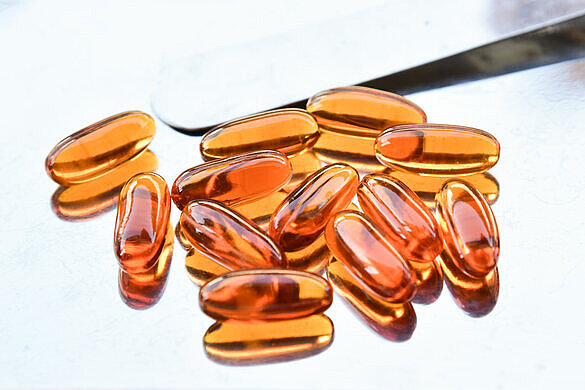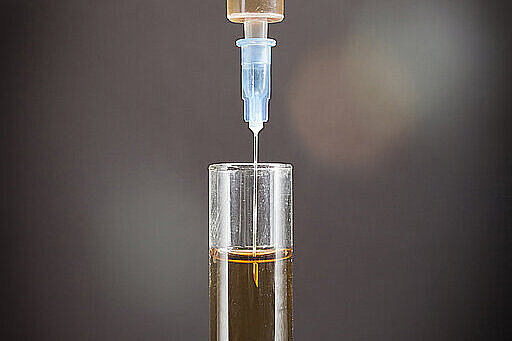Glycerol monostearate

When looking at the list of ingredients in dog food, many owners stumble across terms that raise more questions than answers. One of these ingredients that often leads to confusion is glycerol monostearate. But what is behind this complex-sounding name and what role does it play in the diet of our four-legged friends? In this article, we take a closer look at glyceryl monostearate, analyzing its benefits and potential drawbacks to paint a comprehensive picture of this additive.
What is glyceryl monostearate?
Glyceryl monostearate, also known as GMS, is a chemical compound used in both the food and animal feed industries as an emulsifier, thickener and stabilizer. It is an ester derived from glycerol and stearic acid. This substance is known for its ability to bind water and oils together, which would otherwise not be possible naturally. This makes glyceryl monostearate an important ingredient in many products, from cosmetics to food and, of course, dog food.
Benefits of glyceryl monostearate for dogs
Improving the texture of food
GMS plays an essential role in the production of dog food, especially wet food and snacks. It helps to create a uniform consistency and prevents the separation of oil and water components. This not only ensures a more appealing texture, but also makes the food more palatable for the dog.
Increased shelf life
Thanks to its stabilizing properties, glycerol monostearate helps to extend the shelf life of dog food. It prevents the components of the food from breaking down, which is particularly important in moist food forms in order to maintain freshness and quality over a longer period of time.
Supporting the absorption of nutrients
GMS can also promote the absorption of certain nutrients in the dog's digestive tract. By improving the emulsion of fats, it supports the more efficient absorption of fat-soluble vitamins and nutrients, which can contribute to improved nutrition.
Possible disadvantages
Potential digestive problems
Although glyceryl monostearate is generally considered safe, some dogs may be sensitive to large amounts of this additive. This can manifest itself in the form of gastrointestinal discomfort such as diarrhea or vomiting, especially if the food is consumed in high quantities.
Long-term effects are unclear
The long-term effects of continuous ingestion of glyceryl monostearate in dogs have not yet been fully researched. Although there are no immediate serious concerns, it is important to keep an eye on research in this area to ensure that our pet's health is not unintentionally compromised.
Quality and origin
The quality and source of glyceryl monostearate can vary, and not all sources are created equal. Some GMS products may come from less desirable processes or sources, which could potentially affect safety and tolerability.
Glyceryl monostearate is a versatile additive in dog food production that offers both functional and nutritional benefits. Its ability to improve food texture, extend shelf life and aid nutrient absorption makes it a valuable ingredient in many diets. As with all aspects of your dog's diet, the quality of the food and its ingredients should be a top priority to ensure optimal health and quality of life.
If you notice any signs of hypersensitivity or poisoning in your dog, you should see your vet immediately. We are not a substitute for a vet, but we try to be as accurate as possible. Every dog reacts differently and we recommend you get a second opinion or consult your vet if in doubt.
Stay healthy and take good care of your four-legged friend!😊
Similar to Glycerol monostearate
Polysorbate 80, also known as Tween 80, is a yellowish, viscous liquid used in industry as an emulsifier. Emulsifiers are chemical additives that help to combine two normally immiscible liquids,...
Lecithin is a collective term for various phospholipids that play an important role in the cell membrane. Phospholipids are fat molecules that consist of a water-soluble head and a fat-soluble tail....
Monoglycerides have several positive effects for dogs, mainly related to their antimicrobial effect. Monoglycerides can kill or inhibit certain bacteria, viruses and fungi that can be dangerous for...
Diglycerides are fats that consist of two fatty acids and a glycerol molecule. They occur both naturally in food and artificially as additives. In dog food, they are usually used as emulsifiers,...



